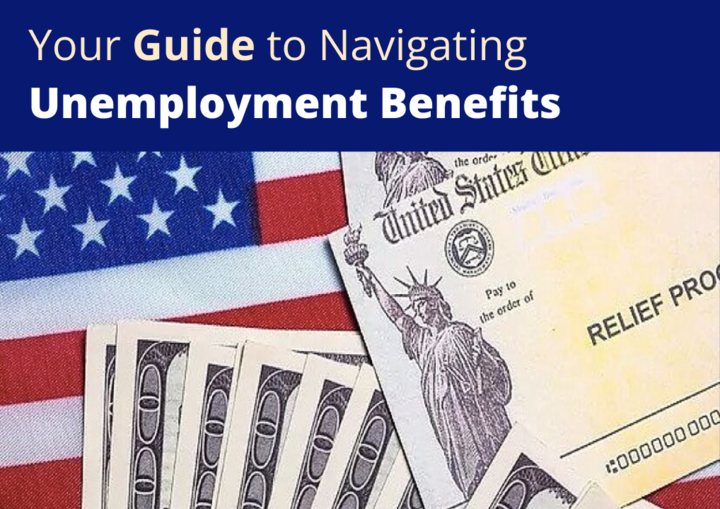A credit score is a numerical representation of an individual’s creditworthiness, typically ranging from 300 to 850. This score is derived from various factors, including payment history, credit utilization, length of credit history, types of credit in use, and recent credit inquiries.
Understanding how these elements interact is crucial for anyone looking to manage their finances effectively.
For instance, a strong payment history can significantly boost your score, while high credit utilization—defined as the ratio of your current credit card balances to your total credit limits—can have a detrimental effect. Credit cards play a pivotal role in shaping your credit score. They are not just tools for making purchases; they are also instruments that can help build or damage your credit profile.
When used responsibly, credit cards can enhance your credit score by demonstrating your ability to manage debt. However, mismanagement, such as late payments or maxing out your cards, can lead to a decline in your score. It is essential to understand the terms associated with credit cards, including interest rates, fees, and rewards programs, as these factors can influence your financial health and credit score over time.
Key Takeaways
- Understanding your credit score and credit cards is essential for managing your finances effectively.
- Paying your credit card bills on time is crucial for maintaining a good credit score and avoiding late fees.
- Keeping your credit card balances low can help improve your credit utilization ratio and overall credit score.
- Avoid opening too many credit card accounts to prevent potential negative impacts on your credit score.
- Monitoring your credit report regularly can help you identify and address any errors or fraudulent activity.
- Using different types of credit responsibly, such as installment loans and revolving credit, can positively impact your credit score.
- Be mindful of hard inquiries on your credit report, as they can temporarily lower your credit score.
- Seek professional help if needed to better understand and improve your credit score and overall financial situation.
Paying Your Credit Card Bills on Time
Ensuring On-Time Payments
Setting up automatic payments or reminders can help ensure that you never miss a due date. Many financial institutions offer mobile apps that allow you to track due dates and payment amounts easily. Moreover, paying your bills on time not only helps maintain a good credit score but also fosters a positive relationship with your creditors.
Benefits of Consistent On-Time Payments
Consistent on-time payments can lead to increased credit limits and lower interest rates over time.
Some credit card companies even offer rewards for timely payments, such as cash back or points that can be redeemed for travel or merchandise.
Protecting Your Credit Score and Reaping Rewards
By prioritizing timely payments, you not only protect your credit score but also take advantage of potential benefits that come with responsible credit card use.
Keeping Your Credit Card Balances Low
Maintaining low balances on your credit cards is another essential strategy for managing your credit score effectively. Credit utilization ratio—the percentage of your total available credit that you are currently using—should ideally be kept below 30%. For example, if you have a total credit limit of $10,000 across all your cards, you should aim to keep your total balances under $3,000.
High utilization can signal to lenders that you may be over-reliant on credit, which can negatively impact your score. In addition to its effect on your credit score, keeping balances low can also help you avoid high-interest charges that accumulate when carrying a balance from month to month. Credit card interest rates can be exorbitant, often exceeding 20% APR.
By paying off your balances in full each month, you not only maintain a healthy credit utilization ratio but also save money on interest payments. This practice encourages disciplined spending habits and fosters a more robust financial foundation.
Avoiding Opening Too Many Credit Card Accounts
While having multiple credit cards can provide benefits such as increased available credit and various rewards programs, opening too many accounts in a short period can be detrimental to your credit score. Each time you apply for a new card, a hard inquiry is made on your credit report, which can temporarily lower your score. Additionally, lenders may view multiple recent applications as a sign of financial distress or risk-taking behavior, potentially leading to denials for future credit applications.
It is advisable to be strategic about when and why you open new accounts. If you are considering applying for a mortgage or an auto loan in the near future, it may be wise to hold off on opening new credit cards until after those applications have been processed. Instead of applying for several cards at once, focus on building a solid relationship with one or two cards that offer favorable terms and rewards that align with your spending habits.
Monitoring Your Credit Report Regularly
Regularly monitoring your credit report is an essential practice for anyone looking to maintain a healthy financial profile. You are entitled to one free credit report per year from each of the three major credit bureaus: Experian, TransUnion, and Equifax. By reviewing these reports, you can identify any inaccuracies or fraudulent activities that may negatively impact your score.
Errors in reporting can occur due to clerical mistakes or identity theft; thus, vigilance is key. In addition to checking for inaccuracies, monitoring your credit report allows you to track changes in your score over time and understand how different financial behaviors affect it. Many services offer free access to your credit score along with insights into what factors are influencing it.
By staying informed about your credit status, you can make proactive decisions regarding debt management and financial planning.
Using Different Types of Credit Responsibly
Managing Various Forms of Debt
This includes revolving accounts like credit cards and installment loans such as mortgages or auto loans. Having a mix of different types of credit can show lenders that you are capable of handling various financial obligations.
Approaching Diversity with Caution
However, it is crucial to approach this diversity with caution. Opening new types of accounts solely for the sake of improving your score can lead to unnecessary debt and financial strain.
Strategic Diversification
Instead, focus on using existing accounts responsibly and consider diversifying only when it aligns with your financial goals. For instance, if you have been consistently managing a couple of credit cards well and are ready for a larger purchase like a home or car, taking on an installment loan could be a strategic move.
Being Mindful of Hard Inquiries on Your Credit Report
Hard inquiries occur when a lender checks your credit report as part of their decision-making process for extending new credit. While these inquiries are a normal part of applying for loans or credit cards, they can have a temporary negative impact on your score—typically lasting about 12 months before falling off completely. It’s important to be mindful of how many hard inquiries you accumulate over time; too many in a short period can signal risk to potential lenders.
To mitigate the impact of hard inquiries on your score, consider spacing out applications for new credit over several months rather than applying for multiple accounts simultaneously. Additionally, when shopping for loans—such as mortgages or auto loans—try to do so within a short timeframe (usually 30 days). Most scoring models treat multiple inquiries within this period as a single inquiry, minimizing the potential damage to your score.
Seeking Professional Help if Needed
Navigating the complexities of personal finance and credit management can be overwhelming at times. If you find yourself struggling with debt or unsure about how to improve your credit score effectively, seeking professional help may be beneficial. Credit counseling services offer guidance on budgeting, debt management plans, and strategies for improving your financial health without incurring additional debt.
Additionally, if you encounter issues such as identity theft or significant inaccuracies in your credit report that you cannot resolve independently, consulting with a financial advisor or legal expert specializing in consumer rights may be necessary. These professionals can provide tailored advice based on your unique situation and help you develop a comprehensive plan for achieving financial stability and improving your credit profile over time.
FAQs
What is a credit score?
A credit score is a numerical representation of an individual’s creditworthiness, based on their credit history and financial behavior.
How is a credit score calculated?
Credit scores are calculated using a variety of factors, including payment history, credit utilization, length of credit history, types of credit used, and new credit inquiries.
Why is it important to improve your credit score?
A higher credit score can lead to better interest rates on loans, higher credit limits, and more favorable terms on financial products. It can also make it easier to qualify for loans and credit cards.
How can credit cards be used to improve a credit score?
Credit cards can be used to improve a credit score by making on-time payments, keeping credit utilization low, and maintaining a long and positive credit history.
What are some ways to improve a credit score using credit cards?
Some ways to improve a credit score using credit cards include paying bills on time, keeping credit card balances low, avoiding opening too many new accounts, and using different types of credit responsibly.
Can using credit cards irresponsibly hurt your credit score?
Yes, using credit cards irresponsibly, such as making late payments, maxing out credit limits, and opening multiple new accounts in a short period of time, can hurt your credit score.
How long does it take to see an improvement in a credit score after using credit cards responsibly?
It can take several months to see an improvement in a credit score after using credit cards responsibly, as positive payment history and credit utilization are key factors in credit score calculations.







